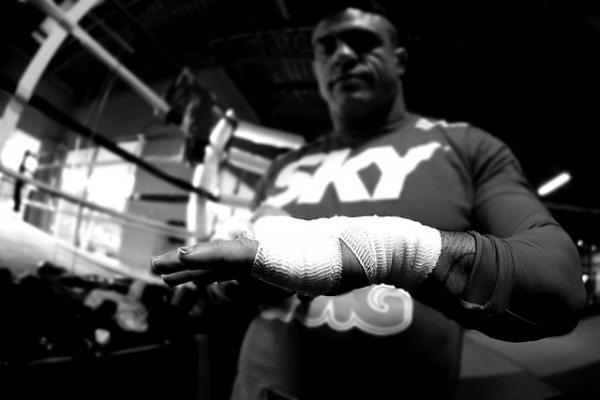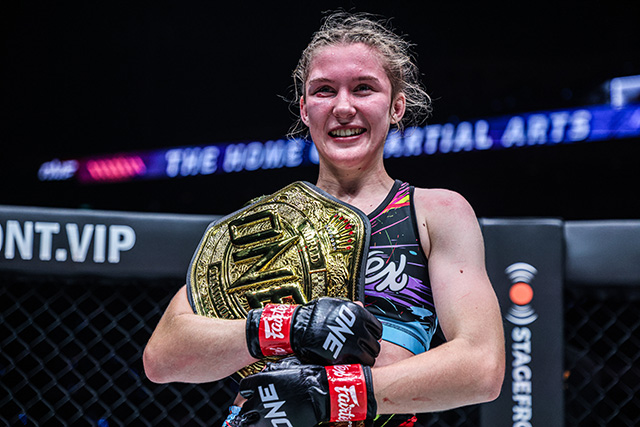Viewpoint: Still More Work To Be Done

With Thursday’s decision to suddenly ban therapeutic use exemptions for testosterone the Nevada Athletic Commission sent a clear message that it will no longer be part of the farce that has seen mixed martial artist after mixed martial artist line up for a permission slip to use one of the best -- if not the best -- performance-enhancing drugs available to athletes looking for a competitive advantage.
What the NAC did not do is eradicate the problem of PEDs in combat sports.
Advertisement
With that said, the move by the most prominent commission in the country -- which was quickly adopted by the Ultimate Fighting Championship, the sport’s top promoter -- is little more than a public-relations maneuver without a number of follow-up steps that are necessary to ensure this sport is regulated in an intelligent and vigilant manner.
While cheating will not be as simple as having a shady doctor put
pen to prescription pad, at least in Nevada, it still is not
difficult to do with the state of drug testing programs
administered by the athletic commissions currently patrolling
MMA.
On the top of the wish list in the battle to limit PEDs in any sport has to be random, unannounced, out-of-competition drug testing for all licensees. It is hard enough to catch cheaters when drug screens are arbitrary; it is nearly impossible to catch PED users when they know when they will be tested. Only the dumbest of the dumb get caught in that scenario.
These tests would also have to include carbon isotope ratio testing. CIR tests let regulators know if the testosterone in an applicant’s systems is natural or synthetic, no matter the levels.
Currently, fighters whose tests come back at a testosterone-to-epitestosterone level below 1:4 in most states -- 1:6 in Nevada -- are considered fine. A normal person’s T:E ratio falls much closer to 1:1. You can see why it might be important to verify if one’s testosterone is natural when he or she has elevated T:E ratios.
It is pretty hard to find anyone who does not agree this is a necessity for any legitimate PED enforcement policy; however, the question that persists: Who will pay for it? The dollar figure starts to add up quickly when you start adding up the number of fighters who would be subject to these tests.
Add in the fact that standard tests performed by most commissions are wholly inadequate and the more comprehensive panels that must be conducted, including CIR testing, escalate costs quickly. A CIR test can cost around $800 per test, according to Andy Foster, the executive officer of the California State Athletic Commission.
Another key component of a comprehensive policy to limit PEDs in MMA has to be a universal set of regulations that are rigorously enforced. Right now, the commissions who regulate MMA make up a fractious group with divergent ideas on a whole host of issues pertaining to overseeing the sport.
You have commissions that do not like the idea of a blanket ban of TUEs for testosterone; you also have commissions that do not feel the need to even do cursory drug testing at events held in their jurisdictions; and you have commissions that do not even regulate amateur MMA in their states.
Until all of these bodies can get on the same page and follow the same guidelines, everybody is left to chase their own tails.
Honestly, after debating this for some time, I do not see any way to accomplish the goal of safe and consistent regulation under the system we have now; and despite the myriad of issues creating a single body to administrate combat sports would raise, I cannot think of a better solution.
It is a harrowing enterprise anytime you create a big bureaucratic institution, but with the stakes as high as they are in combat sports, it is time for a federal commission to govern these competitions.
One commission failing to do any drug testing in its state?
Problem solved.
Another commission failing to report suspensions accurately or follow suspension guidelines set up by the Association of Boxing Commissions?
Problem solved.
Promoters shopping fights to commissions that will allow a questionable fighter to be licensed to compete?
Problem solved.
If a federal commission were able to collect taxes and fees from promoters no matter where fights are held, it could establish a fund to cover the thorough out-of-competition testing program that would become a real deterrent to would-be cheaters.
If the power brokers of the sport want to institute a rule change, there would only be one place you had to go to get that done. Rather than go to individual state or provincial legislatures to get this approved dozens of times for each change, it would be a one-stop regulatory shop to get rules changed.
On the flip side, there are some issues that would have to be overcome. Large government agencies tend to get cumbersome quickly and one has to wonder what the cost structure of an entity like this would be. There should be substantial savings with consolidation, but who knows how those efficiencies would be utilized.
From a promoter standpoint, I can see why a federal commission might not be wanted. It is hard to imagine a centralized agency not wanting the same powers the Muhammad Ali Act grants the ABC in boxing. That is a non-starter for the UFC. Some compromise would have to be struck on this account. Also, the cost for increased drug testing will surely be passed on to promoters. The UFC does the lion’s share of business in MMA and would bear the biggest percentage of the increased cost.
With that said, I still do not see a better way to bring about the radical changes that need to happen to ensure MMA is not viewed as the next cycling, horse racing or even baseball during its steroid era.
Last week’s progress in Nevada is not insignificant, but it can become so much more substantial if the sport continues to move towards a true World Anti-Doping Agency- or United States Anti-Doping Agency-style testing program that will help ensure the safety and welfare of its participants.
Related Articles







